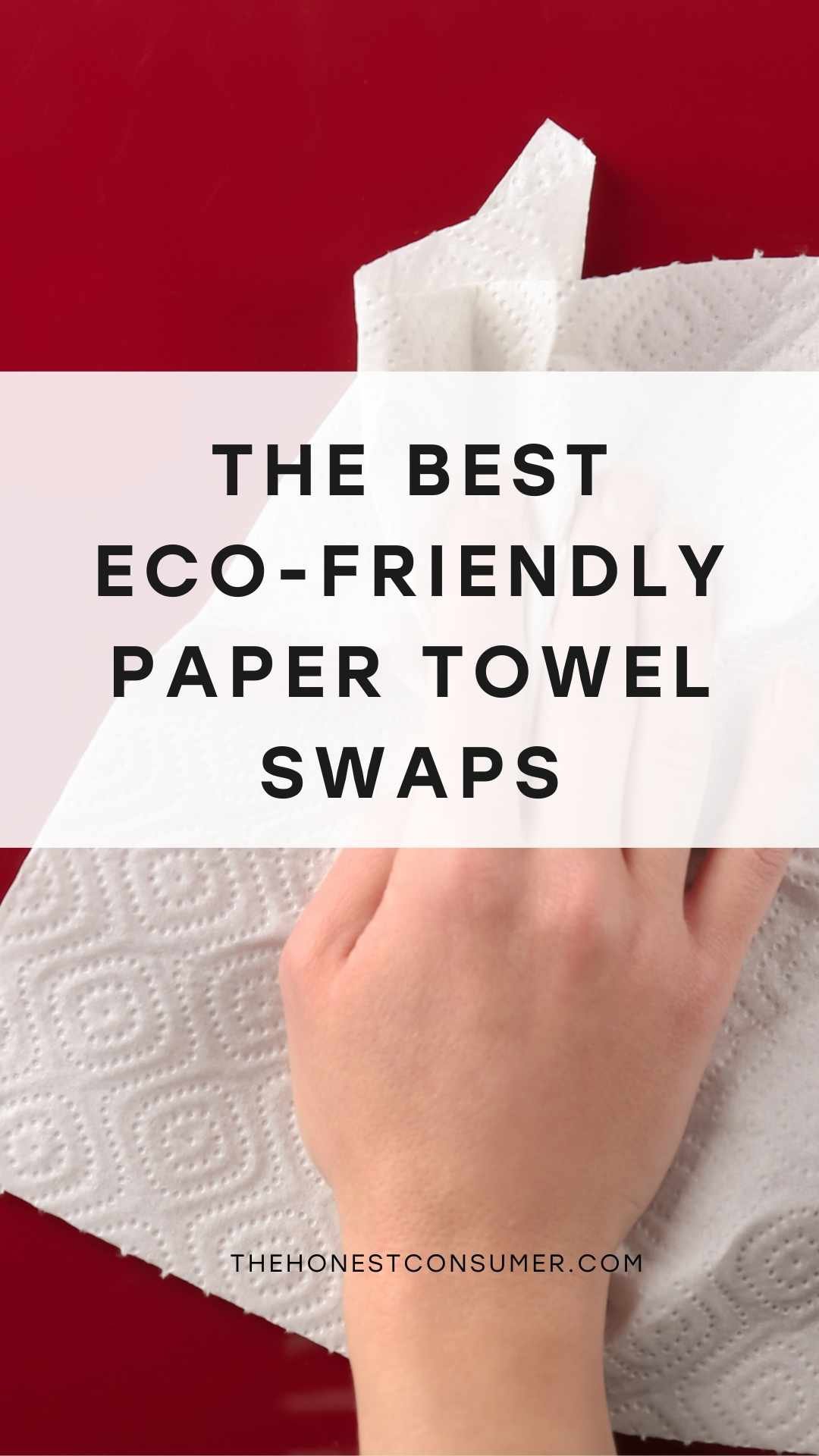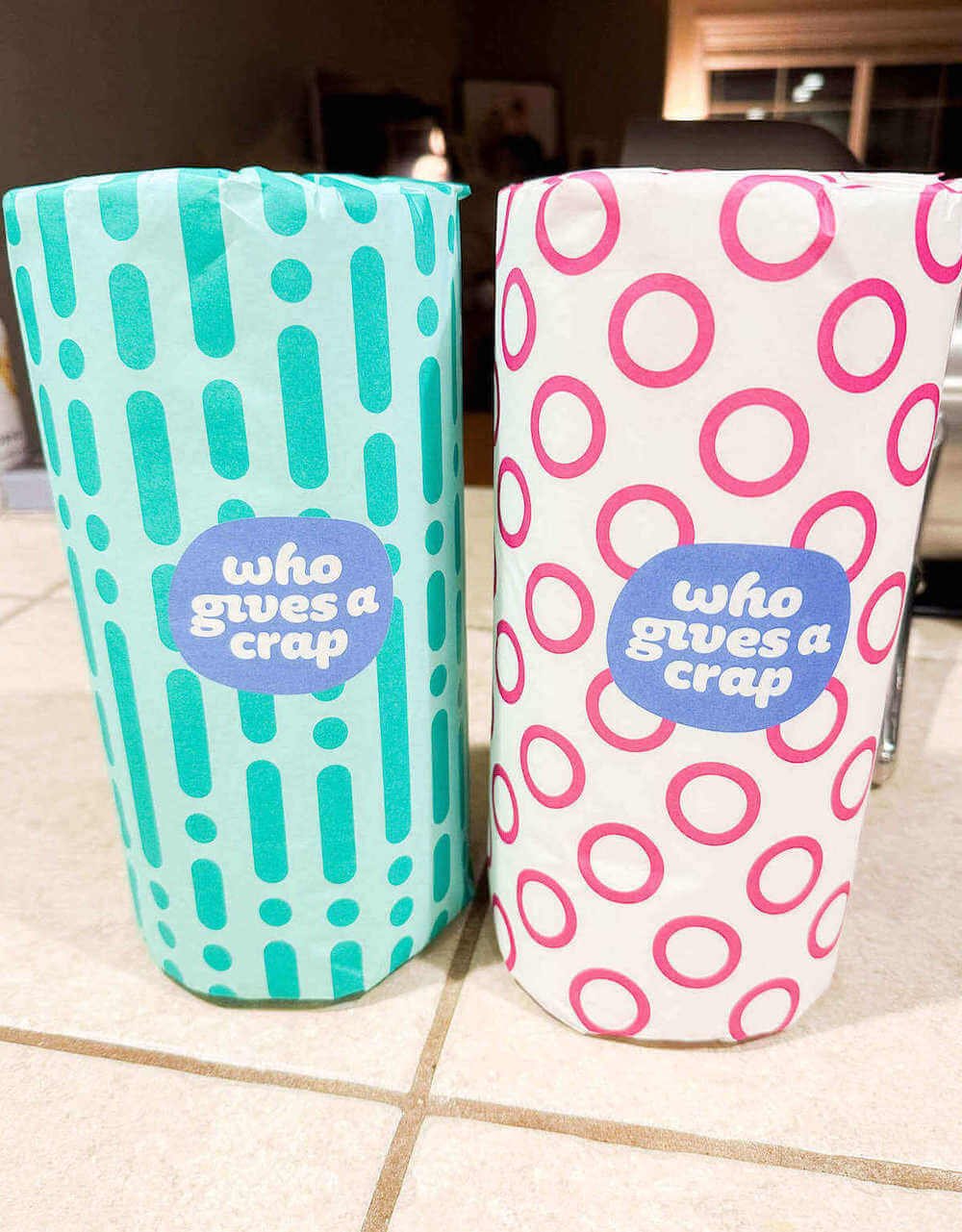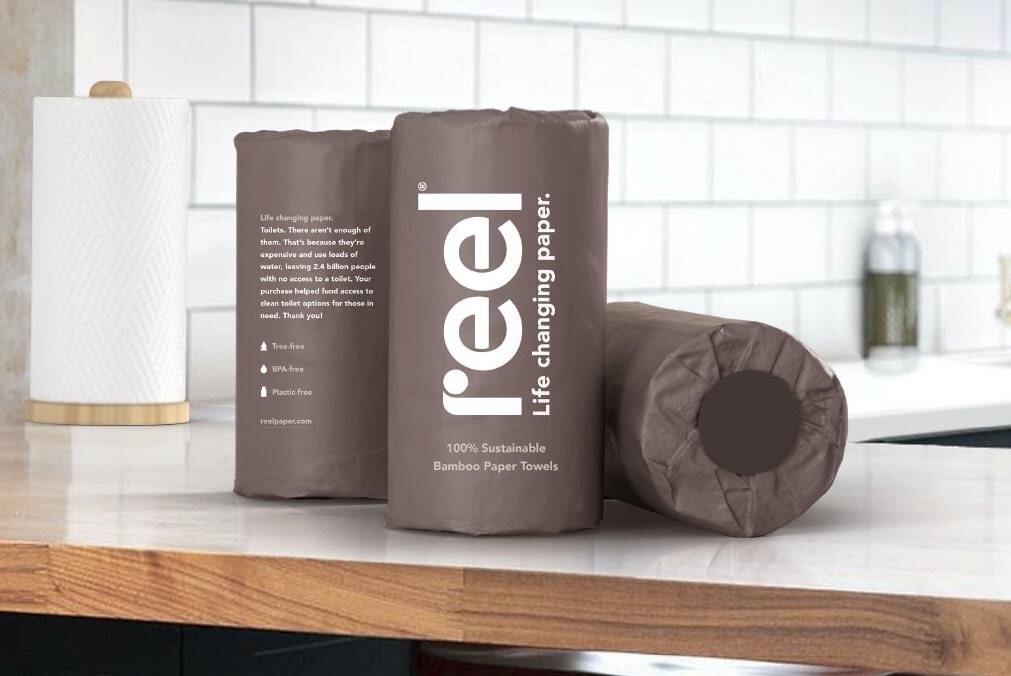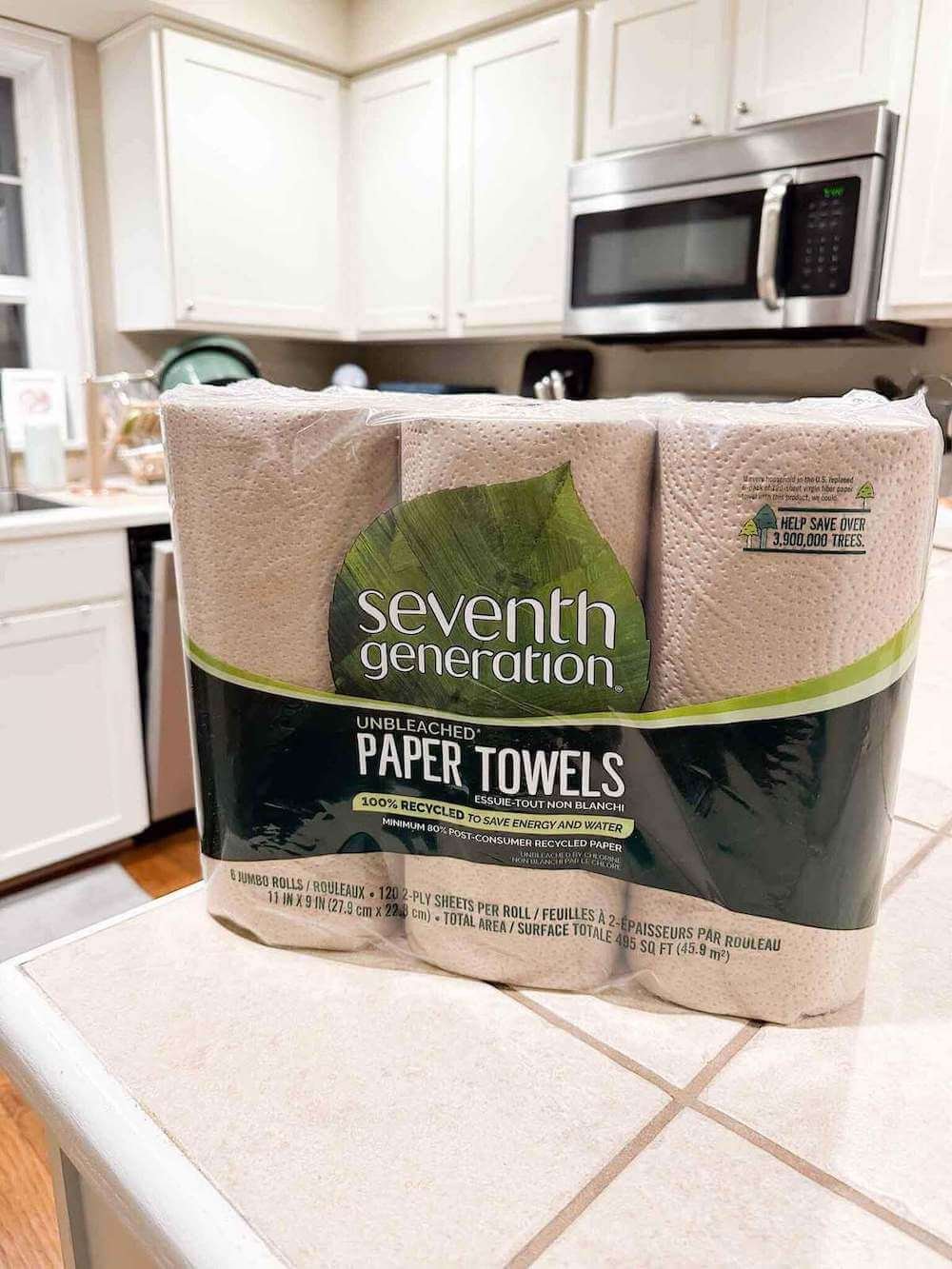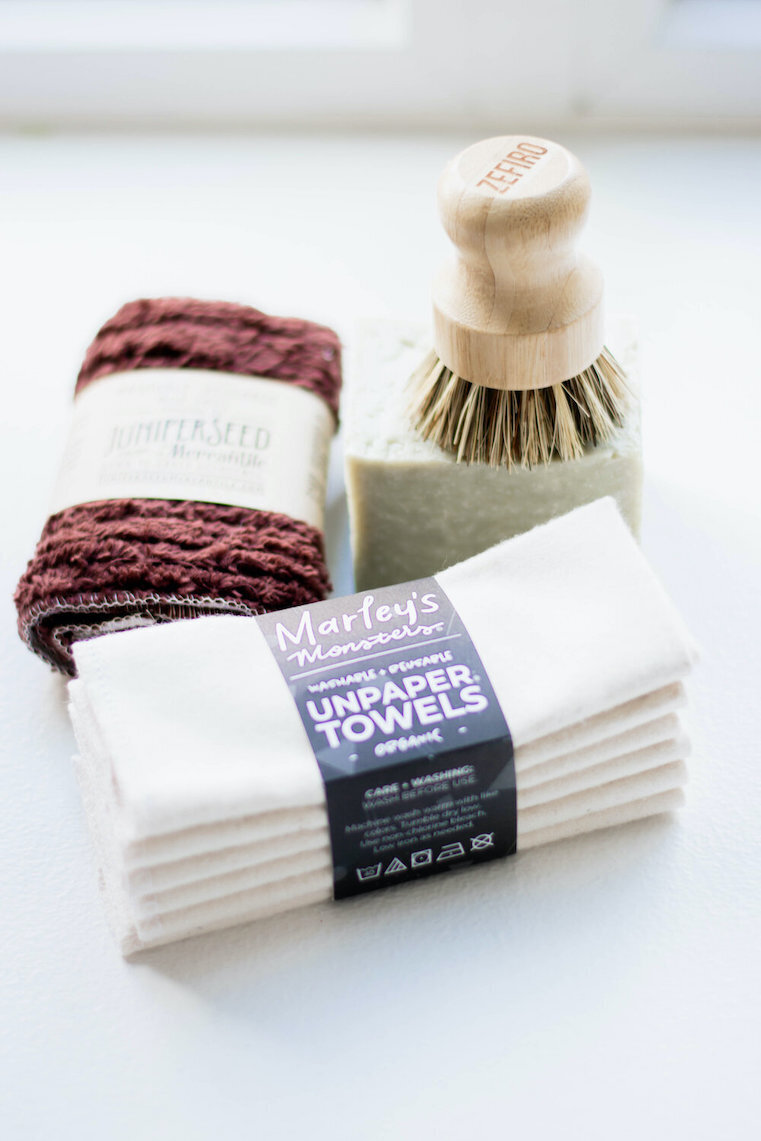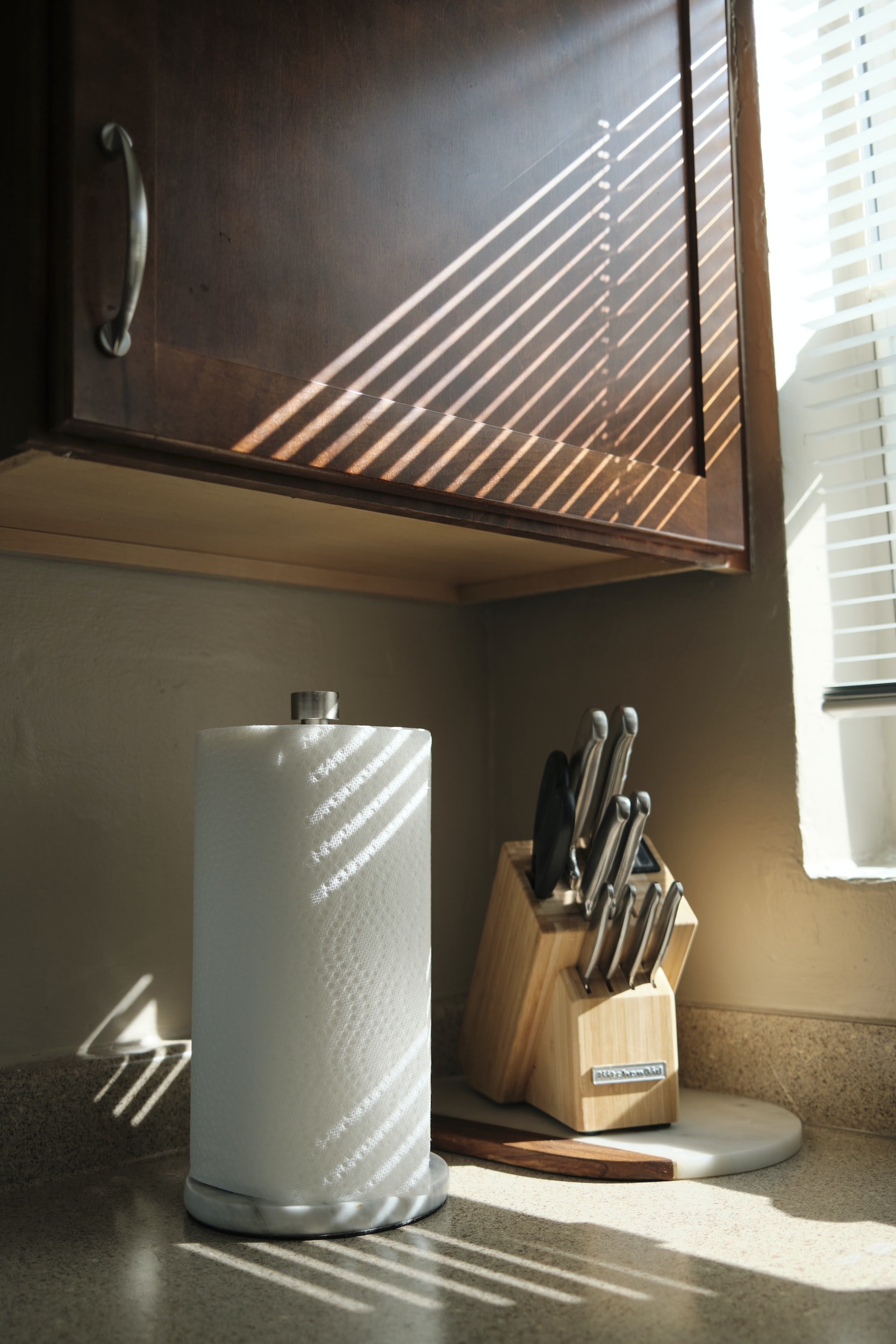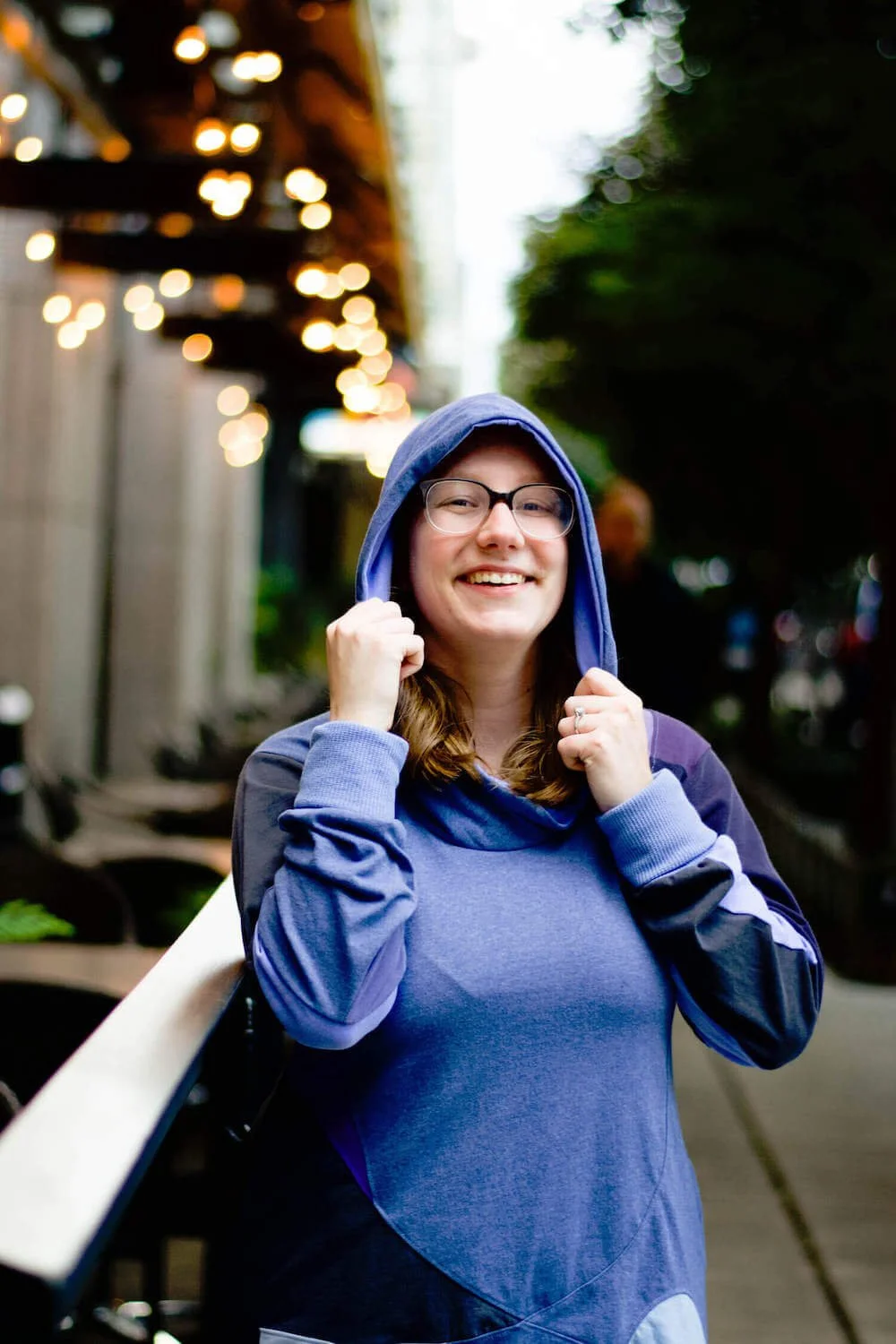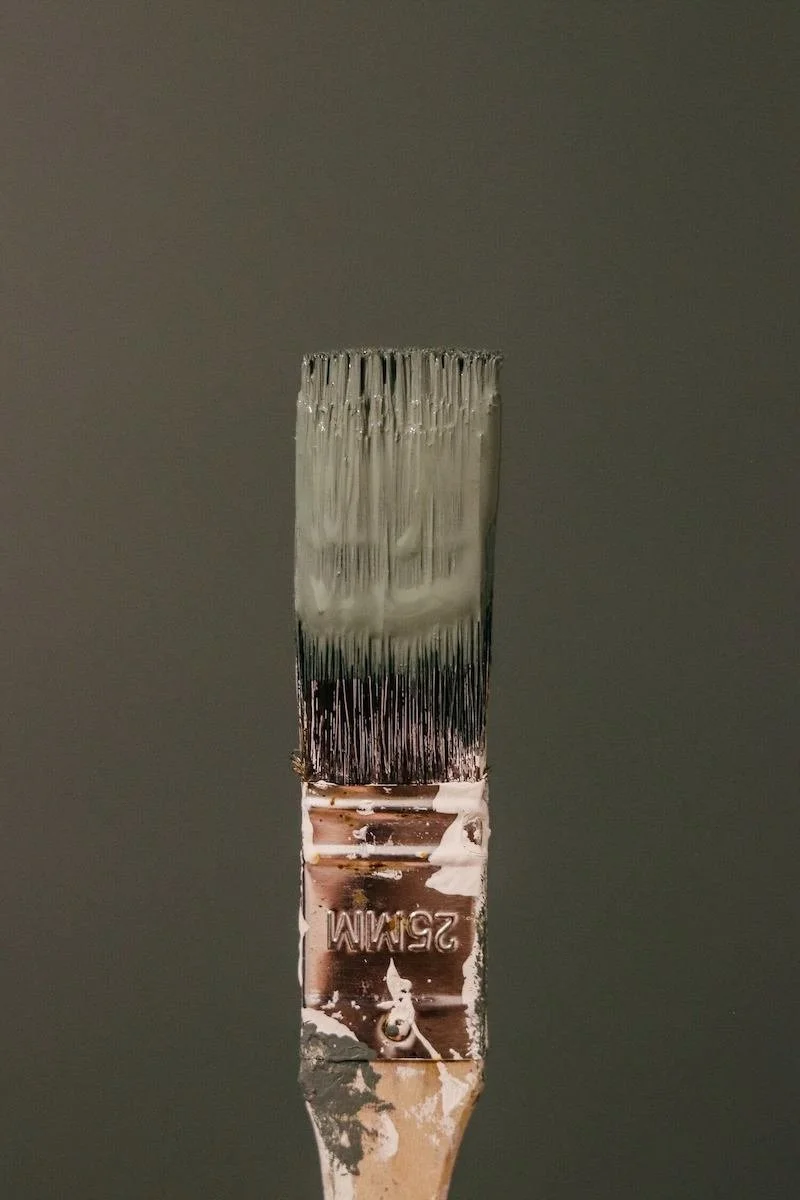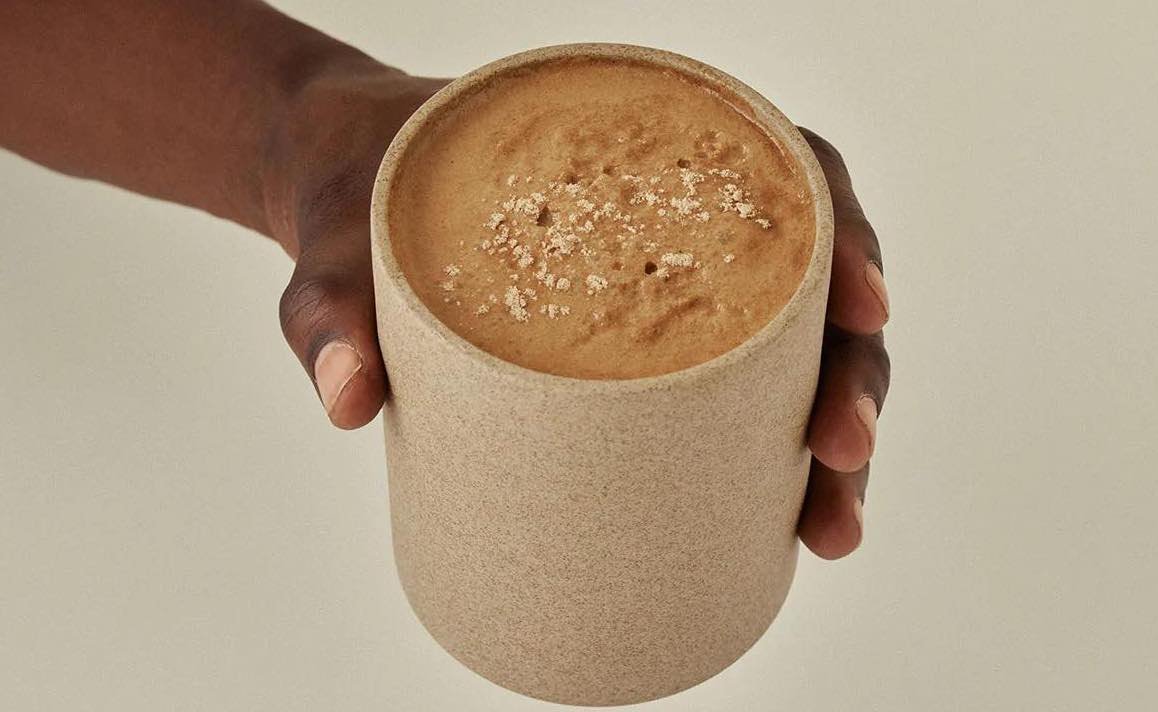7 Eco-friendly Paper Towel Alternatives for a Low Waste Swap
As you start to make swaps towards a lower waste lifestyle, paper products can be a good place to start!
This guide will start off with a list of the best eco-friendly paper towel alternatives and then explore the sustainability of standard paper towels by exploring the environmental impact and harsh chemicals found in this single-use item.
Pin this sustainable paper towel guide for later!
My Thoughts on Sustainable Paper Towel Brands & Other Alternatives
There are so many alternatives to traditional paper towels such as bamboo paper towels & cloth options.
I’ve tried a range of eco-friendly paper towels, reusable towels, and cloth options. I haven’t found a disposable sustainable paper towel that is as absorbent as conventional paper towels which is a bummer.
So, I personally like to stick to Swedish dish cloths and cloth basic kitchen towels.
However, if you prefer a disposable option paper towels made from recycled materials or bamboo can be worth a try!
Our swap recommendations do contain affiliate links. The Honest Consumer will be compensated if you decide to make a purchase. Our compensation is at no additional cost to you.
Tree Free Paper Towel Brands
Discover paper towel options made from bamboo and recycled materials. If you're looking for disposable paper towels, these are great options!
I’ve tried paper towels from all these brands.
Who Gives a Crap’s recycled paper towels
Price Range: $20-$36
As you can tell by their cheeky name, Who Gives a Crap specializes in recycled and bamboo toilet paper.
Since their successful start with a crowdfunding campaign, they’ve expanded and now sell paper towels made from 100% recycled paper and are biodegradable.
These sustainable paper towels can be purchase for around $20 for a set of six rolls. Who Gives a Crap comes in plastic-free packaging and is a certified B corp.
Why I Recommend This Brand: Of the tree free paper towels I’ve tried, Who Gives a Crap were one of the better paper towels!
Reel: Bamboo Paper Towels
Price Range: $39-$50 but you can use HONEST25 for 25% off your first purchase
Reel is a Black owned tree free toilet paper brand. Reel Paper is made with 100% bamboo features zero plastic packaging, even the tape, and gives back.
Reel Paper Bamboo Paper Towels are biodegradable and contain no ink or dyes.
Further your waste reduction with Reel because their deliveries are made in recyclable, plastic-free boxes. Reel’s bamboo paper towels can be purchased in a one time purchase for $50 for 12 rolls or on subscription for a lower price.
Use the discount code HONEST25 for 25% off your first purchase from Reel.
Why I Recommend This Brand: In our house we’re avid Reel toilet paper users! I have tried their paper towels and they were one of the better options as far as disposable options go.
Public Goods: Tree Free Paper Towels
Price Range: $7
Public Goods tree free paper towels are a stronger sustainable alternative to ordinary paper towels made from fast-growing non-GMO grasses including bamboo and sugarcane.
With Public Goods tree free paper towel option there are no inks, dyes, fragrances and BPA. Public Goods paper towels can be purchased from for around $7 for a set of two rolls.
Why I Recommend This Brand: I tried Public Goods paper towels and I think this is one of the more affordable options if you’re looking for a disposable option when swapping out conventional paper towels!
Seventh Generation Paper Towels Made from Recycled Materials
Seventh Generation is known for creating eco-friendly alternatives to paper products.
Their paper towels are made from 100% recycled paper with a minimum of 50% post-consumer content. They are Forest Stewardship Council certified (FSC). Seventh Generation offers bleached and unbleached paper towel options.
The price varies for these paper towels depending on the type and quantity.
Why This Brand is On the List: This was probably my least favorite brand of paper towels. However, I did include it on my list because it is easy to find in stores that can be purchased in lower quantities.
Reusable Paper Towel Alternatives
Sometimes called unpaper or nonpaper towels, reusable paper towels can be washed and, of course, used again.
They’re usually made from natural or blended fabrics or wood paper alternatives like bamboo.
UNpaper Towels Made in the USA
Price Range: $38-$65 per set
Marley’s Monsters creates sustainable reusable solutions for all sorts of single-use items including napkins, food wraps, and baby wipes.
Their solution for paper towels is UNpaper® Towels: single-ply 100% cotton flannel towels handmade in Oregon. These zero waste paper towels are machine washable allowing consumers to ditch single-use products.
It’s reported that one 24 pack of UNpaper Towels can replace up to 70 rolls of paper towels!
Why I Love This Product: I have tried Marley’s UNpaper towels. I really love how absorbent they are AND how they can form into paper towel rolls! Plus, they’re easy to throw in the washer and clean.
DIY Reusable Towels
This can be a DIY-solution is free and great for crafty families! Simply make your own reusable towels by cutting up old sheets, clothes, or towels. If you’re looking to purchase fabric cloths, search for brands made from sustainable fibers like organic cotton, hemp, or linen.
These are great because you can put them in the washing machine and reuse them. This is also a wonderful option for any one looking for affordable swaps.
Swedish Dishcloths
Invented in 1949 by Swedish engineer Curt Lindquist, these cloths are a blend of natural and renewable fibers: plant-based cellulose and cotton.
Soft, absorbent, and pliable, Swedish dishcloths are reusable and biodegradable.
I use these in my house! They’re great for cleaning in the kitchen and beyond! Wiping down just about anything is a breeze with Swedish dishcloths.
Most Swedish Dishcloths are dishwasher safe which makes for effortless cleaning and reusing!
EcoRoots Swedish Dish Cloths
Price Range: $6-$7
EcoRoots reusable dishcloth can be used on glass, granite, tile, ceramic, stainless steel, and works well with just water, soap, or sprays.
Their reusable cloths have the functionality of a cellulose sponge with the durability of up to 15 rolls of paper towels, plus they feature fun prints such as flowers or foods.
These biodegradable dishcloths air dry very fast, can absorb 20x its weight and it doesn’t breed bacteria or create odor like a conventional (disposable!) sponge.
Why I Love This Product: I have some of these in my kitchen and love them! They work really well. They're top rack of the dishwasher safe, so they're super easy to clean! EcoRoot's Swedish dish cloths come in fun prints and designs.
Package Free Shop Swedish Dish Cloths
Price Range: $18
Package Free’s Swedish Dish Cloths are made with two natural ingredients: 70% Cotton + 30% Plant Cellulose. The dish cloths come in a box made from 100% recycled paper. These dish cloths can be purchased in a set of three for $18.
Why I Recommend This: While I haven’t specifically tried Package Free’s Swedish dish cloths, I have ordered plenty of products from them in the past. I’m always impressed with their zero waste swaps and am sure their Swedish dish cloths would be a great choice.
Three Bluebirds: Quirky Printed Dish Towels
Price Range: $6-$7
Three Bluebirds Swedish Dishcloth believes their product is more than just a dishcloth – it is an investment in the health of the planet. It’s a step toward a more sustainable way of life.
Three Bluebirds is committed to protecting and maintaining our Earth, from its forests to its wetlands, and each purchase supports this mission.
Why I Recommend This: This is a family owned business! Three Bluebirds believes in simplicity, sustainability, and supporting local business. Three Bluebirds dish cloths feature unique designs that are sure to make a statement in your kitchen.
The Environmental Impact of Paper Towels
The United States is the biggest consumer of paper towels. In 2017, global spending on paper towels for home use totaled about $12 billion; Americans accounted for about $5.7 billion of that total.
EarthHero reports that Americans use and toss roughly 254 million tons of single-use paper towels each year? That equals as many as 51,000 trees a day!
Demand for paper towels, and wood products in general, contributes to one of the most pressing environmental issues: deforestation.
Can Paper Towels Be Recycled or Composted?
The go-to when managing waste in our homes is often recycling, but it’s not an option for paper towels because they’ve usually been contaminated by food, grease, or bodily fluids.
The good news (sort of) is that paper towels that are free of chemicals can be composted.
Most of the pure white paper towels we purchase at the grocery store are a bleached variety which means you can’t add them to compost.
What chemicals are in paper towels?
Paper towels go through a process to remove lignin, which gives paper its brown color.
However, when paper towels are not white enough they are bleached using elemental chlorine.
This releases dioxins and furans, which are powerful carcinogens and mutagens that end up in wastewater and eventually in rivers and streams.
When shopping for paper towels, look for brands that are Process Chlorine Free (PCF) or Totally Chlorine Free (TCF).
Move away from paper towels using virgin wood pulp and seek out options that are free of ink, dyes, and fragrances.
While traditional paper towels are not the most sustainable option, luckily, there are a range of sustainable and eco-friendly options to replace the single-use mess that paper towels create.
Hopefully this guide has encouraged you to find more sustainable alternatives to regular paper towels.
Making the swap to an eco-friendly paper towel alternative is a great way to help lower your carbon footprint and reduce the amount of waste produced in your home. Every little sustainable swap you make has a positive impact on the planet!
Meet the Authors
Product Trial & Recommendation
Emily Waddell is the founder of The Honest Consumer. She has always been passionate about business for good and has a Bachelor of Science in Social Entrepreneurship. She currently lives in Seattle where she practices imperfect sustainability. When she’s not writing, Emily enjoys supporting small businesses, clean eating, ethical fashion, and practicing slow living.
Industry Research
Claudia Hauter is a South African writer, copy editor, and content creator with degrees in Drama and Anthropology. She works in television managing web content. When she isn’t reading or writing, she’s walking her dog, finding small businesses and markets to support, or attracting butterflies and bees with her vegetable garden. Learn from Claudia on Twitter or Instagram.
For more tips & tricks on sustainable living be sure to follow The Honest Consumer on social media, subscribe to our newsletter, & check out the Ethical & Sustainable Brand Directory.

